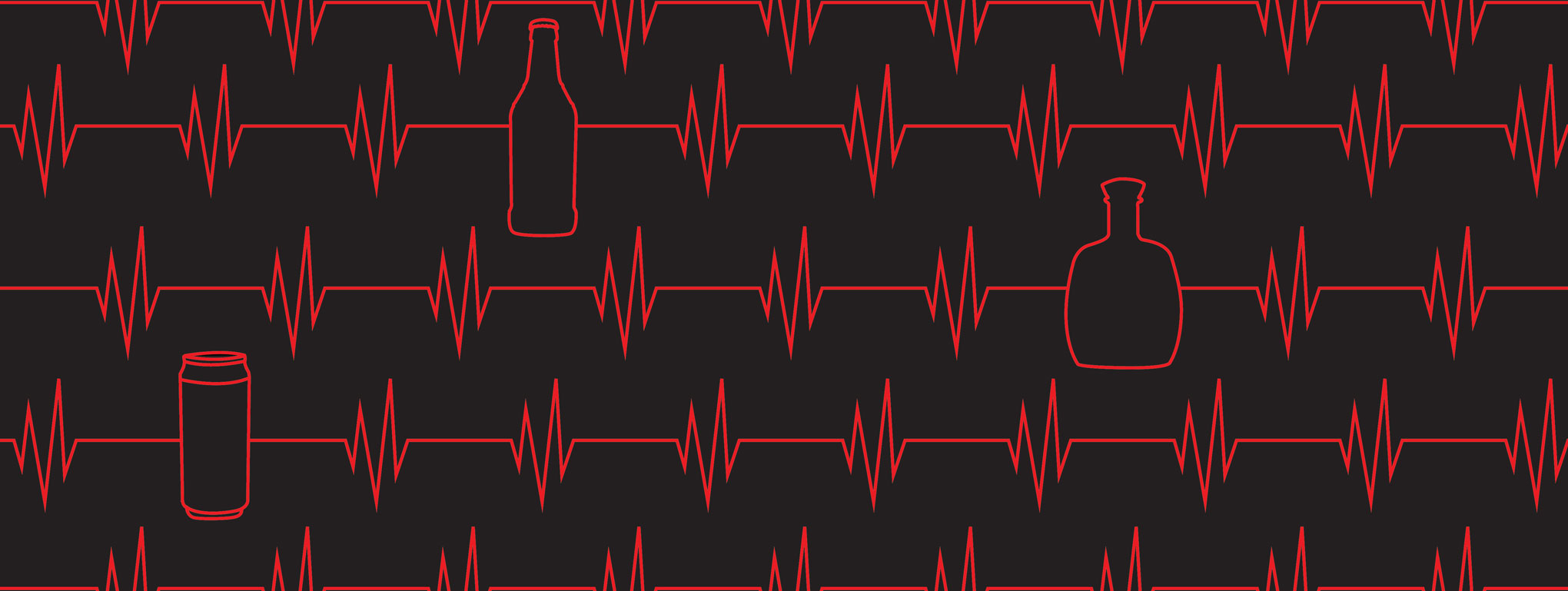
The creator of an alcohol poisoning education program spoke to Drexel University students Oct. 24 in The Summit about preventing alcohol-related deaths and how this relates to the university’s alcohol amnesty policy.
The initiative, called “Don’t Stall, Just Call,” was created by Mary Ciammetti in 2015 after she lost her son — a student at Temple University — to alcohol poisoning.
“Don’t Stall, Just Call was created out of the tremendous grief of losing our son in an unimaginable way — from binge drinking,” Ciammetti said. “Our program was created in hopes that no other families would ever have to endure or stand in our shoes — losing a child because of lack of education.”
Ciammetti’s mission is to ensure that all young people can recognize and quickly react to the symptoms of alcohol poisoning. The most common signs are stumbling, mumbling, being cool to touch or blue-ish in color, unresponsiveness and vomiting, she explained.
Citing the Centers for Disease Control and Prevention, she explained how alcohol poisoning can set in after four drinks in a two-hour period for females, and after five drinks for males.
Ciammetti played a presentation about her son, explaining how he had been passionate about his studies, was interested in ceramics, enjoyed the outdoors and was an overall nice person. He was a fortunate student and “had it all going on,” according to Ciammetti, and the family never thought he would have turned to alcohol.
“Christian became a binge drinker in college, and by the time we found out, it was too late,” Ciammetti said to the audience, which consisted of representatives from the university police department.
She explained how after a night of intense drinking, her son demonstrated every single sign of alcohol poisoning. His friends did not know the symptoms and put him to bed. The next morning, they found him cool to the touch and blue, and he was rushed to Temple University Hospital but passed away after seven days on life support.
“We tried to pick up the pieces of life,” Ciammetti said. “How you do that, I don’t know. We are still trying.”
While her story is personal, she explained how this was not an isolated incident.
“This can happen to anybody,” she said. “Why aren’t we talking about it?”
She tells her story so that it doesn’t keep happening, she said.
Ally Maier, a freshman studying mechanical engineering who attended the talk, said she enjoyed this more personalized approach, especially compared to the former high school programming she was exposed to.
“It was very personal,” she said. “It hit home.”
Jenna Harju, a sophomore music industry student, said the presentation surpassed the university’s freshman seminar on alcohol.
“This was way more personal and it gets the message across better,” she said.
In addition to creating the “Don’t Stall, Just Call” campaign, Ciammetti often travels to high schools and colleges to share her story and highlight individual campus policies.
She explained how Drexel has a medical amnesty policy for life-threatening emergencies that protects the caller and the underaged drinker from being cited.
Thomas Cirone, a community relations police officer, expanded on the policy, explaining how it protects students and encourages them to call when they need help. He added that since instating the policy, the department has received more calls on weekends and has seen more use of the Drexel Guardian app, an anonymous text messaging service to report emergencies.
“Nobody calls your parents, because you are all over 18, and nobody gets in trouble,” Cirone said. “We just want to keep you on the right path, and hopefully you learn from the experience and make the most out of your college years and your education.”
Sheena Vaildin, a sophomore studying health sciences, said that both Ciammetti and Cirone highlighted a prevalent issue on college campuses and discussed a policy that not enough students know about.
“We see it all the time and nobody gives two thoughts,” she said. “I wish more people would hear this.”
The policy has been adopted by many colleges in Pennsylvania, though Ciammetti advocated that it should be on every college campus.
People recognize what choking looks like and know how to react, she said. We can’t say the same about alcohol poisoning.
“I knew the only way we could make a change in our culture is if we start talking about it and learning about it and preventing it from happening again,” she said. “We believe, with education, that we can save lives.”


